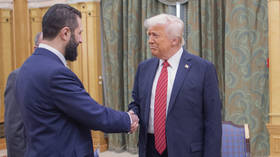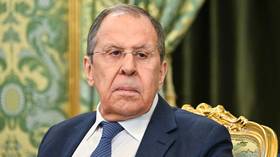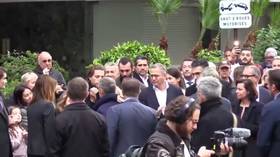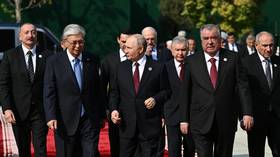US moves to implement Trump’s ‘vision’ for Syria

The White House has initiated a significant shift in policy toward Damascus by easing longstanding sanctions and appointing a special envoy, following US President Donald Trump’s recent meeting with Syria’s interim leader Ahmed al-Sharaa.
Al-Sharaa, also known by his nom de guerre Abu Mohammad al-Julani, rose to prominence as the leader of Hayat Tahrir al-Sham (HTS), an Islamist group with ties to Al-Qaeda, which led a coalition of opposition groups that toppled longtime leader Bashar Assad last year.
“I will be ordering the cessation of sanctions against Syria in order to give them a chance at greatness,” Trump announced at an investment forum in Riyadh last week, where he met al-Sharaa and expressed hope that the new government would “succeed in stabilizing the country.”
On Friday, the US Treasury Department issued General License 25 (GL25), authorizing previously prohibited transactions under the Syrian Sanctions Regulations (SSR). The measure effectively lifts restrictions on dealings with Syria’s central government, including the Central Bank of Syria, several state-owned banks, energy firms, telecommunications providers and national carriers such as Syrian Arab Airlines.
Simultaneously, US Secretary of State Marco Rubio issued a 180-day waiver of the Caesar Syria Civilian Protection Act, suspending some of the most punitive measures passed by Congress in 2019. The waiver covers financial services, engineering, and logistics support for projects involving water, electricity, sanitation, and public health. Rubio described the move as a “first step” in fulfilling Trump’s new “vision” for Syria.
Earlier this week, Rubio warned US lawmakers that a civil war of “epic proportions” could erupt in Syria within weeks. Although the country’s new leadership “didn’t pass their background check with the FBI,” Rubio said the US must support them in order to prevent wider regional instability. He defended Trump’s approach, arguing that maintaining a pragmatic foreign policy means the US human rights agenda is “different in certain parts of the world” than in others.
Russian Foreign Minister Sergey Lavrov stated in February that the sanctions were “harming the Syrian people” and should be lifted without preconditions.
In order to oversee Washington’s growing ties with Damascus, Trump has appointed Tom Barrack, his ambassador to Turkey and longtime confidant, as US Special Envoy for Syria. Barrack said on Friday that the administration’s goal was to “integrate Syria into a peaceful, cooperative Middle East,” and hinted that reopening the US Embassy in Damascus was “on the table.”
While sanctions relief is significant, most measures remain temporary, with GL25 expiring in six months unless renewed. Congress would need to pass legislation to permanently repealing the Caesar Act and related sanctions packages imposed since Syria was designated a state sponsor of terrorism in 1979.














